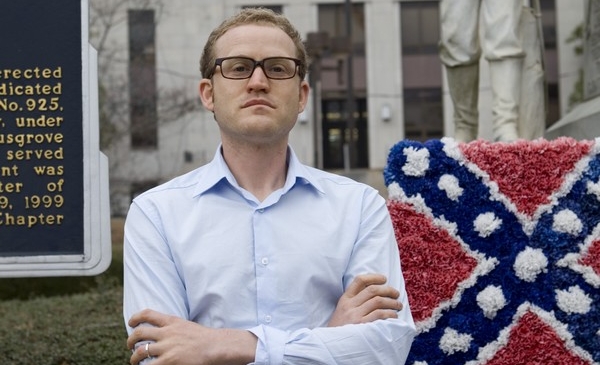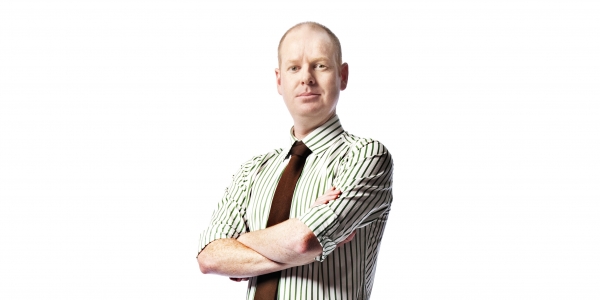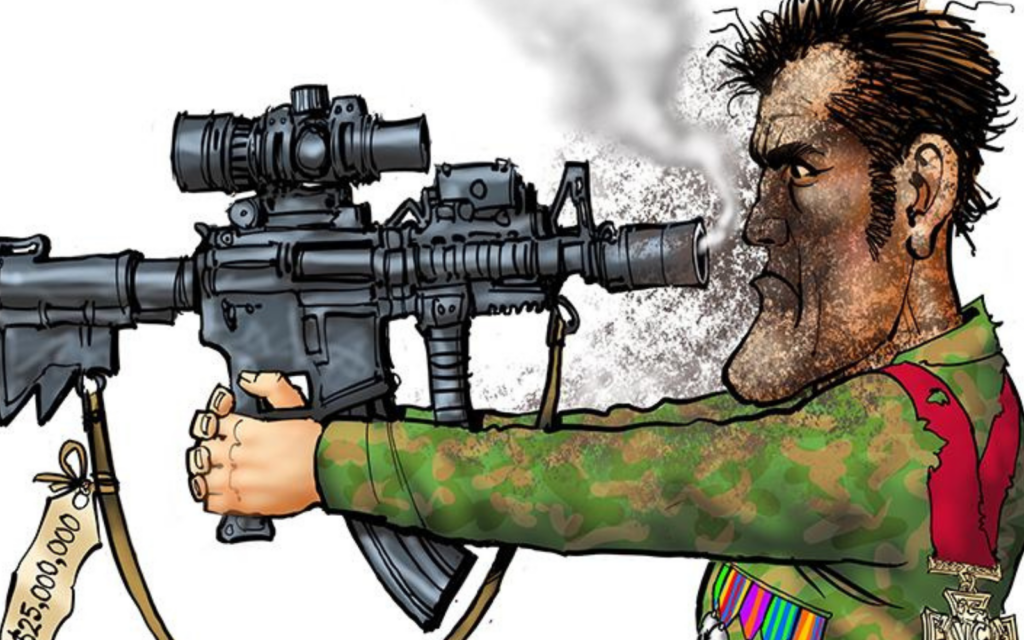“I’d never read a true crime book before, not even the famous ones,” Safran explains. He is calling from a train platform, I’m in a meeting room with one phone on speaker and one on record. I include these details because John is explaining how he learnt to write true crime. Copy someone else. “By utter coincidence after Richard Barrett was killed, but before I started to write the book I started reading this book about this killer, a true story from the late 1800s World Fair in Chicago. This serial killer set up a hotel and built torture chambers in it. So visiting women from all over America would stay there. I loved it and at the very end the author’s note says, ‘I based it on the logic of Truman Capote’s in Cold Blood, and he wasn’t there for everything he wrote about.’ So then I read that, and then Midnight In the Garden Of Good and Evil. Suddenly I was reading all these true crime books and I started making these connections between my doco work and what true crime writers do.”
All Safran needed was a crime. “Because I’m thick and slow it didn’t occur to me immediately about the whole Richard Barrett thing,” he giggles as a train passes. “For about two weeks I was poking around Melbourne and asking people if they knew of any sort of murders or anything. But it clicked that I had this bird in the hand. I used Midnight In The Garden Of Good And Evil as a blueprint, in that book he was there way before the trial, so I thought if I’m gonna go I’ll go a month before so I can absorb the town before the trial, so it was guess work.”
In the book, Safran discovers that Barrett, the dead white supremacist, was something of a paranoid fantasist who may have been sexually involved with the black man suspected of killing him, Vincent McGee. For a man accustomed to pranks, the stakes had been raised. “I often lose perspective for a short time,” Safran admits. “When I first met the McGee I was engaging with them like normal, just going over to somebody’s house, I wasn’t making a big drama in my head about them being black and me white or they’re working class and I’m not. Then later I was having this phone call with Chari McGee, Vincent sister, and she said “I’m lying in bed at the moment, well actually I’m not lying in bed because I don’t have a bed, I’m on the floor.” That’s when it clicked, the level of abject poverty they were dealing with. But I think it’s good to just deal with people as normal, it’s the only fair way to write it.”
In typical Safran fashion, he gets himself involved in the narrative, paying the killer for information, buying an engagement ring and then death threats. “Even when I have tried not to be involved in something, I’d end up being involved in it anyway,” Safran says. “I didn’t try to put myself in it that much but you just sort of end up in there. I think the way I write that it’s healthier because you are declaring to the reader that you’re an observer with limitations. It’s better than pretending that you are giving some birds eye view; objective, true of everything. In the first draft I tried to dodge around that Vincent had asked for money and I’d paid him. I thought the book would be so much better if he just wanted to tell his story. But it wasn’t making sense so I put in that I paid him and it all clicked into place. It wasn’t till after the book was printed that I worked out the logic behind it. Him asking for money and me paying it reveals stuff about his character and also stuff about my character. I’d gone over there to write a book about the murder and he is like the co-star and him demanding money and getting threatening, that is really revealing of his personality, so it was almost perfect.
The Murder in Mississippi stage show isn’t just for those that have read the book, it is the story of how the book happened. “I had these artefacts from the journey,” says Safran. “The phone calls, and the banned video (the genetic testing prank) that ABC never allowed me to screen, and we have Jim Giles the radio DJ slamming me on air. So there all these things that are worthy of bringing off the page and into the real world. It is true crime, this the story of a murder and how I got involved in it.”
BY JACK FRANKLIN







